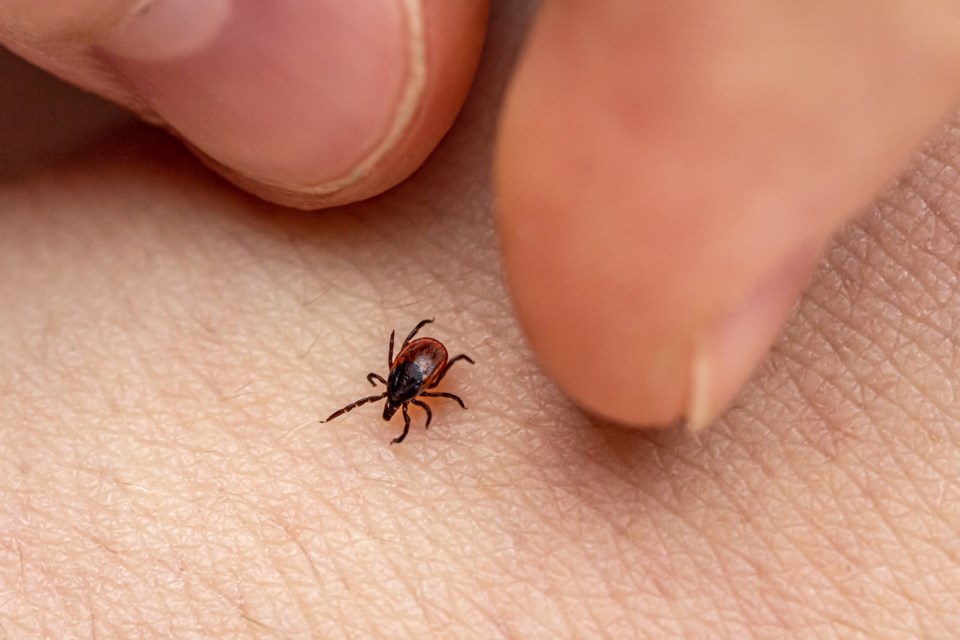Pest experts are predicting that ticks will be the number one pest this summer.
National pest control company Orkin warns Canadians that unseasonably warm temperatures have disrupted usual behaviour patterns and tick season 2023 will hit harder and earlier than previous years.
The relatively mild winter last year meant that fewer wildlife populations were naturally controlled, ticks being one of them. The parasitic arachnids are part of the mite family and can latch on to both humans and their pets. They do not hibernate and are able to feed on hosts for long periods of time and survive the winter.
The larger-than-usual population that survived the winter will create a second peak of tick populations this spring, which will snowball and give rise to larger tick populations during the early summer and fall months too.
There are some pretty serious dangers associated with ticks because they are known to carry bacteria and viruses that cause illness in humans and animals.
Lyme disease is probably the most well-known disease associated with Black-legged ticks (also known as deer ticks). At the very least, Lyme disease causes fatigue but it may also lead to extreme problems with the central nervous system because the neurotoxins ticks produce can cause tick paralysis and the loss of muscle function.
Other illnesses include the potentially fatal infections bacterial condition, Rocky Mountain spotted fever and tularemia, characterized by fever, weight loss, and ulcers.
How to reduce the risk of being bitten by a tick
Yard maintenance is the best way to keep your property tick-free. Orkin recommends keeping grass mowed, trimming vegetation and tree branches, and getting rid of all leaf and weed litter.
In addition, it's best to manage child and pet activity to limit possible interactions with ticks.
When you're out in forests or in the grass wear proper clothing. Keep shirts buttoned and tucked into pants, and wear proper footwear when possible and when it's not, use tick repellents on any bare or exposed skin.
When coming back inside from the outdoors check yourself and your children for any ticks.



